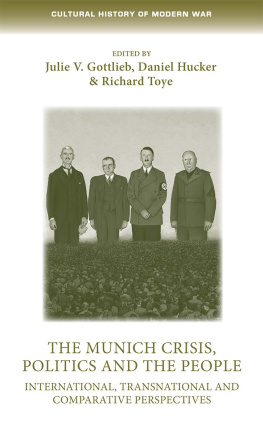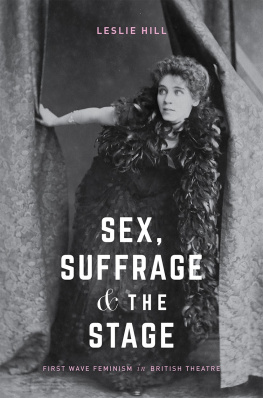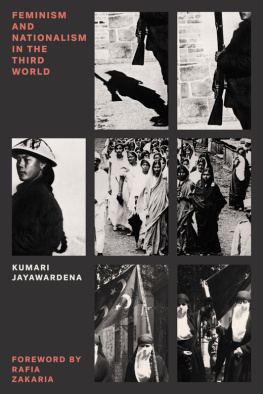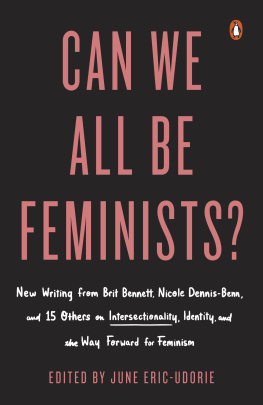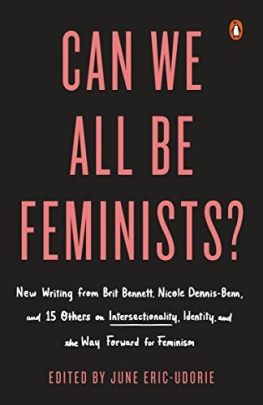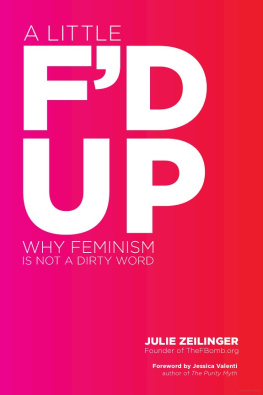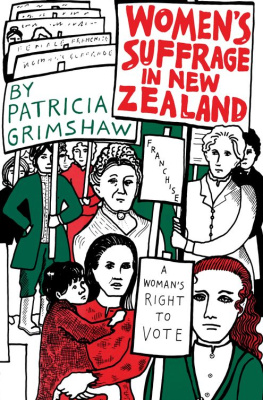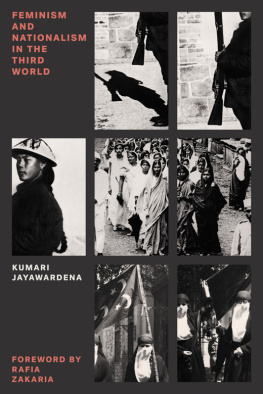Feminism and Feminists after Suffrage
What happened in womens history after the vote was won? Was the suffragette spirit quashed by the advent of the First World War, and due to the achievement of womens partial (1918) and then equal (1928) suffrage thereafter, by having to wait to be reclaimed by the Womens Liberation Movement only in the late 1960s?
This collection explores how individual feminists and the feminist movement as a whole responded to the achievement of the central goal of votes for women. For many, the post-suffrage years were anti-climactic, and there is no disputing that the movement was in numerical decline, struggling to appeal to a younger generation of women who knew nothing of the sacrifices that had been made to secure their citizenship rights and new freedoms. However, feminists went in new and different directions, identifying pressing issues from pacifism to religious reform, from local activism to party politics. Women also organised around causes that were not explicitly feminist or were even anti-feminist, and this book makes the important distinction between women in politics and womens feminist activism. The range of feminist activism in the aftermath of suffrage speaks for the successes and mainstreaming of feminism, and contributors to this volume contest the narrative of a terminal feminist decline between the wars.
This book was originally published as a special issue of Womens History Review.
Julie V. Gottlieb is a Senior Lecturer in the Department of History at the University of Sheffield, UK. She has published widely in the field of political and British womens history, including Feminine Fascism: Women in Britains Fascist Movement, 192345 (2000); The Aftermath of Suffrage: women, gender, and politics in Britain, 19181945, co-edited with Richard Toye (2013); and Guilty Women, Foreign Policy, and Appeasement in Inter-War Britain (Palgrave, 2015).
Feminism and Feminists after Suffrage
Edited by
Julie V. Gottlieb
First published 2016
by Routledge
2 Park Square, Milton Park, Abingdon, Oxon, OX14 4RN, UK
and by Routledge
711 Third Avenue, New York, NY 10017, USA
Routledge is an imprint of the Taylor & Francis Group, an informa business
2016 Taylor & Francis
All rights reserved. No part of this book may be reprinted or reproduced or utilised in any form or by any electronic, mechanical, or other means, now known or hereafter invented, including photocopying and recording, or in any information storage or retrieval system, without permission in writing from the publishers.
Trademark notice: Product or corporate names may be trademarks or registered trademarks, and are used only for identification and explanation without intent to infringe.
British Library Cataloguing in Publication Data
A catalogue record for this book is available from the British Library
ISBN 13: 978-1-138-92784-1
Typeset in Minion
by RefineCatch Limited, Bungay, Suffolk
Publishers Note
The publisher accepts responsibility for any inconsistencies that may have arisen during the conversion of this book from journal articles to book chapters, namely the possible inclusion of journal terminology.
Disclaimer
Every effort has been made to contact copyright holders for their permission to reprint material in this book. The publishers would be grateful to hear from any copyright holder who is not here acknowledged and will undertake to rectify any errors or omissions in future editions of this book.
Contents
Julie V. Gottlieb
Nicoletta F. Gullace
Ingrid Sharp
Anne Logan
Florence Binard
Esther Breitenbach and Valerie Wright
Maria DiCenzo
Julie V. Gottlieb
Caitrona Beaumont
Jessica Thurlow
The chapters in this book were originally published in Womens History Review, volume 23, issue 3 (June 2014). When citing this material, please use the original page numbering for each article, as follows:
Chapter 1
Introduction: flour power and feminism between the waves
Julie V. Gottlieb
Womens History Review, volume 23, issue 3 (June 2014) pp. 325329
Chapter 2
Christabel Pankhurst and the Smethwick Election: right-wing feminism, the Great War and the ideology of consumption
Nicoletta F. Gullace
Womens History Review, volume 23, issue 3 (June 2014) pp. 330346
Chapter 3
Overcoming Inner Division: post-suffrage strategies in the organised German womens movement
Ingrid Sharp
Womens History Review, volume 23, issue 3 (June 2014) pp. 347364
Chapter 4
Political Life in the Shadows: the post suffrage political career of S. Margery Fry (18741958)
Anne Logan
Womens History Review, volume 23, issue 3 (June 2014) pp. 365380
Chapter 5
The Injustice of the Womans Vote: opposition to female suffrage after World War I
Florence Binard
Womens History Review, volume 23, issue 3 (June 2014) pp. 381400
Chapter 6
Women as Active Citizens: Glasgow and Edinburgh c.19181939
Esther Breitenbach and Valerie Wright
Womens History Review, volume 23, issue 3 (June 2014) pp. 401420
Chapter 7
Our Freedom and Its Results: measuring progress in the aftermath of suffrage
Maria DiCenzo
Womens History Review, volume 23, issue 3 (June 2014) pp. 421440
Chapter 8
The Womens Movement Took the Wrong Turning: British feminists, pacifism and the politics of appeasement
Julie V. Gottlieb
Womens History Review, volume 23, issue 3 (June 2014) pp. 441462
Chapter 9
Fighting for the Privileges of Citizenship: the Young Womens Christian Association (YWCA), feminism and the womens movement, 19281945
Caitrona Beaumont
Womens History Review, volume 23, issue 3 (June 2014) pp. 463479
Chapter 10
The Great Offender: feminists and the campaign for womens ordination
Jessica Thurlow
Womens History Review, volume 23, issue 3 (June 2014) pp. 480499
For any permission-related enquiries please visit:
http://www.tandfonline.com/page/help/permissions
Caitrona Beaumont is a Principal Lecturer in Social History in the Faculty of Arts and Human Sciences, London South Bank University, UK. She is the author of a number of articles and chapters on twentieth-century Irish and British womens history, including Housewives, Workers and Citizens: voluntary womens organisations and the campaign for womens rights in England and Wales in the post-war period, in NGOs in Contemporary Britain: non-state actors in society and politics since 1945 (edited by M. Hilton, N. Crowson and J. McKay, 2009). Her new book, Housewives and Citizens: domesticity and the womens movement in England, 19281964, was published in 2013.
Florence Binard is Senior Lecturer in Modern British History and Gender Studies in the Department of Intercultural Studies and Applied Languages at the University of Paris DiderotSorbonne, Paris, France. She is the President of the Socit Franoise dtudes anglophones sur les femmes le sexe et le genre (SAGEF). She has published articles on eugenics and feminism in Great Britain as well as on feminist theory and history. She is co-editor of



